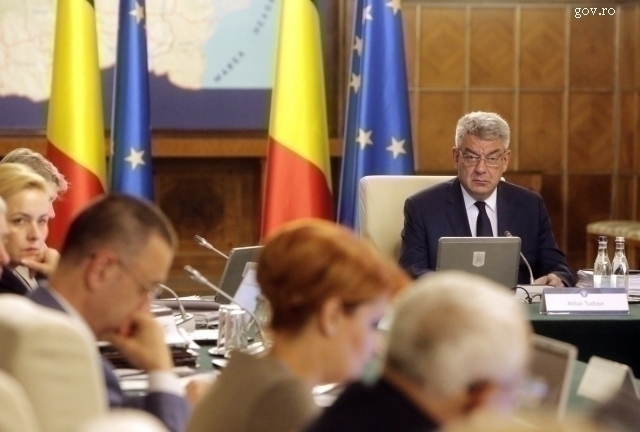The Government gives up some of its planned fiscal measures
Romanias government has scrapped the controversial fiscal measures it has initially announced.

Florentin Căpitănescu, 26.07.2017, 13:44
The leftist Social Democratic Party (PSD), the main party of the government coalition in Romania, has brought significant changes to the governing programme after the installation, a month ago, of a new cabinet headed by Mihai Tudose. Most of these changes targeted the fiscal area. One of them provided that Romanian businesses were to pay their taxes based on their turnover rather than their profit. A measure also included in the governing programme was the solidarity tax, which had been planned to apply to high-income taxpayers. Both measures have been given up, the first one over fears that it could prove disastrous for the business environment and generate a wave of negative consequences. The leftist Government has also given up the solidarity tax, as simulations conducted in this respect showed that its contribution to the budget would be minimal.
Prime Minister Mihai Tudose: “The measure will not yield the desired outcomes and it’s not worth it. For the time being, no other taxation changes are planned.”
PM Tudose has announced the Government also gives up the idea to have the employees pay their health insurance and pension contributions instead of the employer. This controversial measure would have yielded no results either. Representatives of the National Liberal Party (PNL), in the opposition, say that this fiscal uncertainty proves once more that the Government has no major project for Romania’s development.
PNL First Vice President, Raluca Turcan, has said: “Normally, when the system of taxes and duties is set, a strategy for Romania’s long-term development should be had in view. Investors and also people who do a honest work in trying to build themselves a future in Romania, are expecting the government to ensure predictability and confidence.”
In another development, the Finance Ministry has announced that the execution of the general consolidated budget in the first six months of the year has resulted in a deficit of 6.3 billion lei, that is 0.77% of the GDP, as against only 3.9 billion lei or 0.51% of the GDP in the same period last year. In spite of the fact that revenues to the general consolidated budget went up by 8.2%, the deficit has also increased as expenditure went up at a higher rate, of 10%.






























